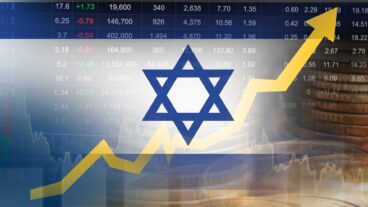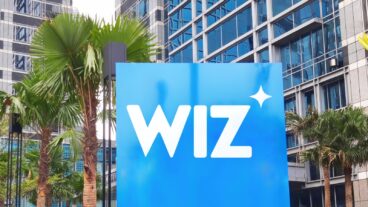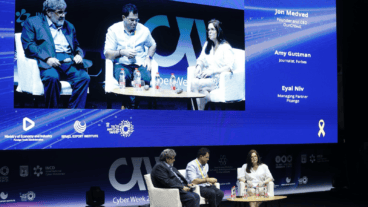Indigo specializes in developing and manufacturing high-end digital printers for large commercial applications.Despite the downturn in Israeli high-tech over the past 18 months, digital printer manufacturer Indigo has positioned itself well to move to the forefront of its industry with the help of its merger in October with U.S. high-tech giant Hewlett Packard, industry analysts say.
Twenty-five-year-old Indigo, based in Tel Aviv, was acquired by HP for $680 million and, since the merger, has operated as a new division within HP’s Imaging and Printing Systems business. An exchange offer by HP for Indigo shares expired March 22, at which point Palo Alto, Calif.-based HP held more than 96 percent of the company’s shares.
Indigo has been incorporated into the HP strategy of providing complete printing packages, said Shlomi Cohen, investment columnist for Globes – Israel’s Business Arena. The company can now offer printing systems to compete with manufacturers of home printers such as Lexmark International, based in Lexington, Kentucky, as well as high quality digital printers such as Heidelberg, based in Heidelberg, Germany.
“Indigo’s digital offset printers, refined by HP’s labs and Compaq’s computer engineers, will help (HP) storm the huge printer market,” Cohen predicted. “I believe this is another reason to consider the (buyout) a success, because the printer revolution pushed by Indigo for the past 25 years will become the spearhead for (HP).”
Indigo founder Benny Landa is known in the printing industry as the creator of digital printing technology. He predicted that “anything that can become digital will become digital and printing is no exception.”
“Indigo had a unique creative drive imparted by… Landa,” Cohen said. “It was mostly expressed in the faith that they could conquer the world, despite giant Xerox’s competing technology, despite tiny competitor Xeicon, which has meanwhile gone bankrupt, and despite the Japanese printer manufacturers.”
The HP buyout confirmed the value of Indigo’s technology, according to Cohen, and stabilized the company after a long period of inconsistency.
At its peak in the early 90s, Indigo shares soared on Nasdaq, placing Landa on the Forbes 500 list of wealthiest individuals. But, as the market began to realize that the high-tech revolution was to be more evolutionary, the company found itself battling fierce competition from larger world players.
“Ultimately we learned that to continue to lead the digital revolution, Indigo needed a big brother to lead them through the rough patches,” said company President Rafi Maor, who spent most of his career with Israel Aircraft Industries, and is now a vice president for HP.
Landa described the opportunity the HP acquisition has created for the company he began twenty-five years ago: “Our vision has always been to lead the printing industry into the digital era and to see Indigo technology pervade the commercial printing market. Now, as part of HP, that goal is in sight.”
The Indigo merger was a perfect fit for HP, shoring up an area of the market where it had once been seen as lagging, according to company chief executive Carly Fiorina, who is now battling to secure the company’s controversial merger with Compaq.
“The Indigo team has a rich history of innovation and strong customer relationships that has made them a leader in the commercial printing market,” Fiorina said. “Our two companies have a proven track record of collaboration, and this new relationship will result in an even more compelling suite of offerings and support services for customers around the world.”
Indigo, which also had buyout talks with both Xerox and Heidelberg, chose HP because of its reputation for treating its employees well, Maor said.
“HP has already sent more than ten families of important development people who are now living in Israel. Every week we have between five and ten HP guests from abroad. You can feel that they are very committed to the (operation),” he said.
HP has shown that commitment by doubling Indigo’s research budget, investing $57 million in new laboratories, according to Maor.












